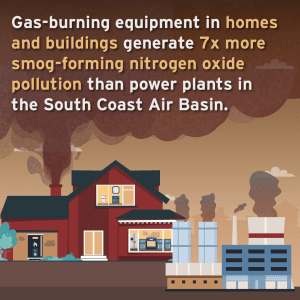Tell South Coast AQMD to pass Clean Appliance Rules!
Questions? Visit SoCalCleanAir.com
Southern California is home to the dirtiest air in the nation. Much of this pollution comes from gas-burning appliances, such as furnaces and water heaters. Air pollution leads to higher rates of asthma as well as respiratory and cardiovascular conditions that can lead to missed days of school or work, costly emergency room visits and even premature death.
For the past 18 months, the South Coast Air Quality Management District (South Coast AQMD) has been developing rules to accelerate the transition to zero-emissions furnaces and water heaters. This action builds on more than 40 years of appliance emissions standards at AQMD.
The current proposal (proposed amendments to Rules 1111 and 1121) sets a clean appliance sales target for manufacturers, starting at 30% in 2027 and rising to 90% in 2036. Importantly, the rules would not ban any specific equipment or require any individual consumer to purchase zero-emission appliances. Additionally, state and local governments, South Coast AQMD and your local utilities can provide assistance to help with the transition.
The fossil fuel industry, big business and landlords are trying to block this plan. They’ve already succeeded in weakening and repeatedly postponing the rules, and now they are trying to kill these clean air rules altogether.
Help us get these important policies passed! To help, you can take the following fast and easy steps to urge the AQMD to finalize these important zero-emission appliance standards.
Actions You Can Take: As always, public participation is critical.
The AQMD Board needs to hear from residents who support clean appliance standards to reduce air pollution in our communities.
- Email the Board
- Send your email to clerkofboard@aqmd.gov
- Use the subject “SUPPORT for PARs 1111 and 1121”
- Customize your email with information about where you live and why you care about clean air. You can also include additional talking points from the list below
Sample message:
To AQMD Board President Delgado and Board Members,
As a resident of the region, I support a transition to clean, zero-emission appliances to reduce air pollution and improve our health.
I’m disappointed that the proposal has been weakened to reduce fewer emissions. Please consider increasing the zero-emission sales targets to 50% in 2027 and 75% by 2029.
It is also critical to stop delaying the rules, and pass PAR 1111 and 1121 as scheduled in May.
Thank you.
- Comment virtually on February 21st at the AQMD Stationary Source Committee
- Join the meeting at 10:30 on Friday, 2/21 on Zoom: https://scaqmd.zoom.us/j/94141492308
- Meeting ID: 941 4149 2308 (applies to all)
- Raise your virtual hand as soon as they get to the agenda item (number not available yet). Here’s the link for the agenda
- When they call your name, unmute on Zoom to make your comment.
- Customize your comment with information about where you live and why you care about clean air. You can also include additional talking points from the list below
- Plan to keep your comment to under 1 minute
Sample comment:
Hi, my name is [Name].
I want to thank the AQMD Board and the AQMD staff for your work on this clean appliance plan. As a [resident/parent/home owner/renter/person with asthma in XYZ city], I support a transition to zero-emission appliances to reduce air pollution and improve our health.
I think this proposal is not ambitious enough. I would support increasing the zero-emission sales targets to at least 50% in 2027 and at least 75% by 2029.
But the main thing is to stop delaying the rules, and pass PAR 1111 and 1121 as scheduled in May.
Thank you.
- Share this action alert with your network via email or social media
- Share why you are motivated to take action
- Include the link to this action alert
- Feel free to copy and use one of the images below!
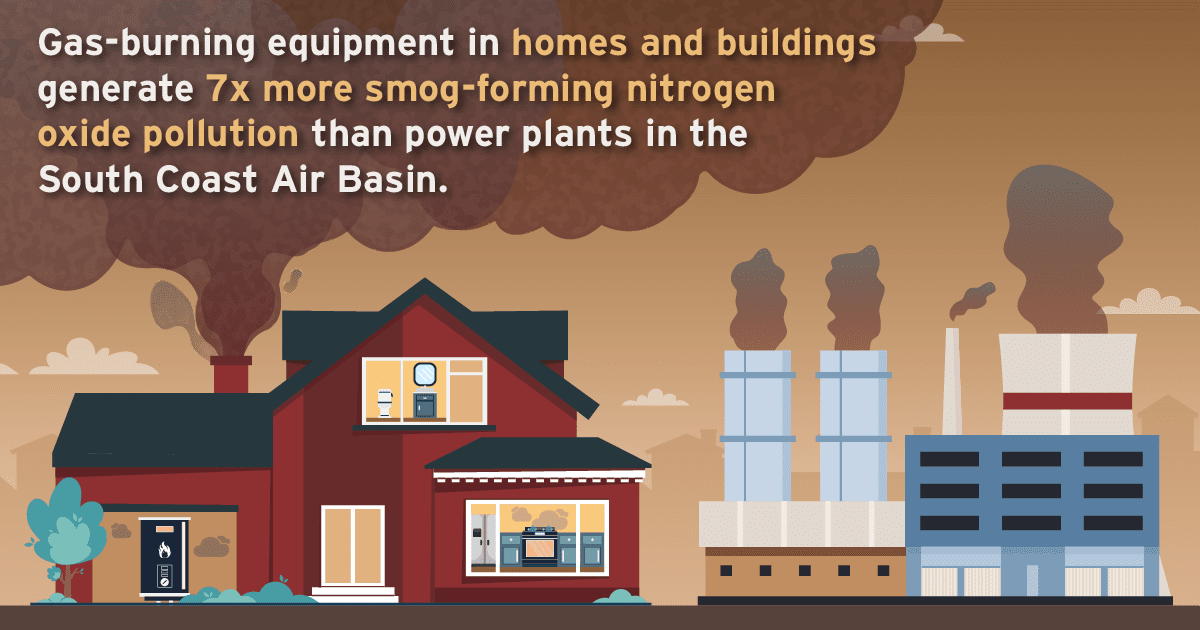
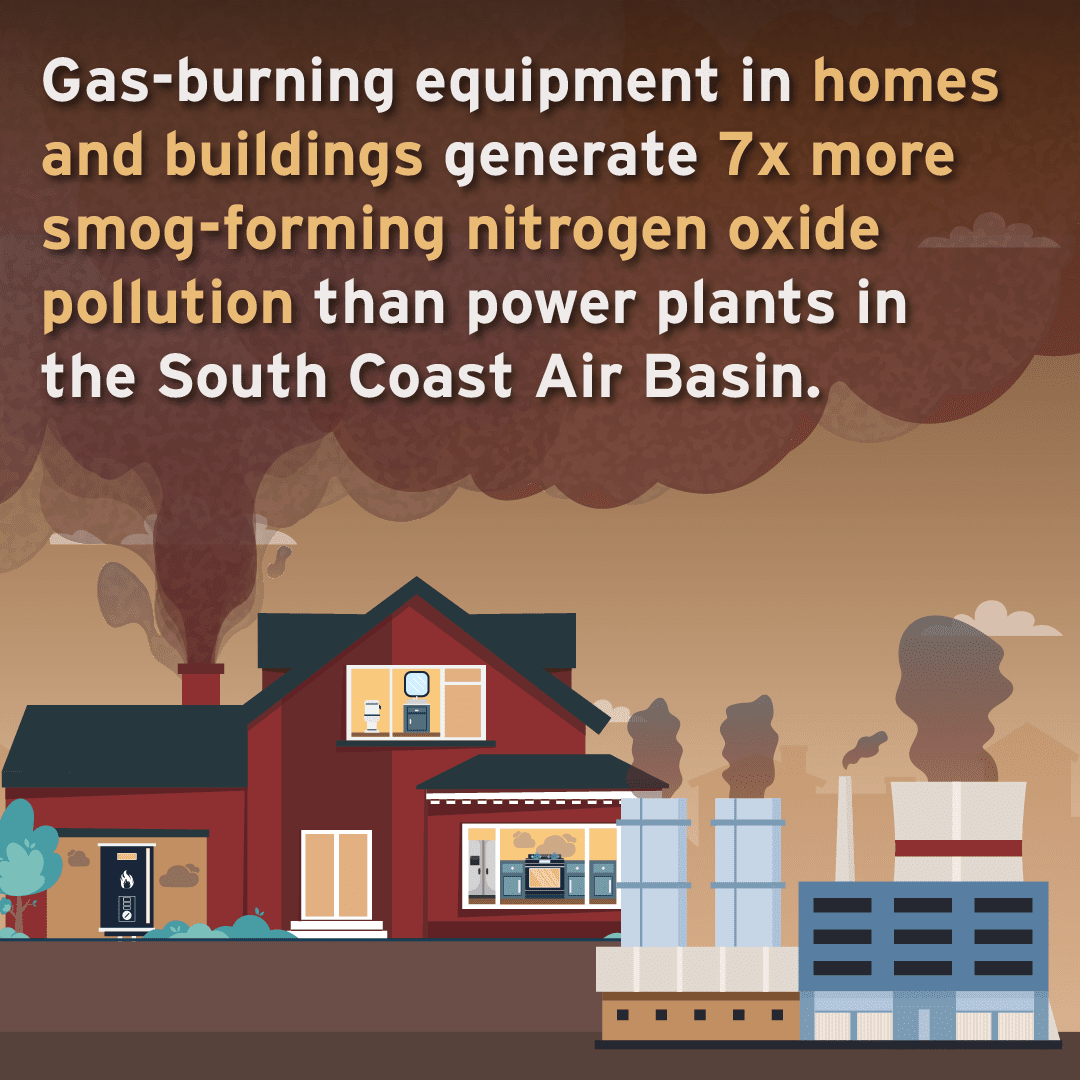
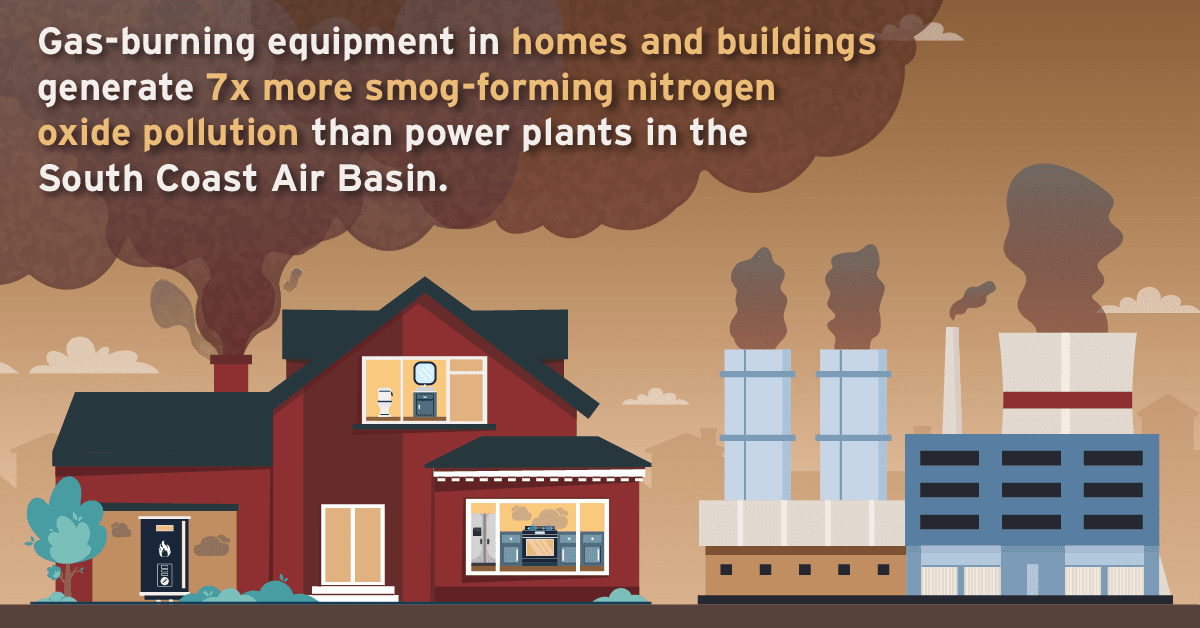
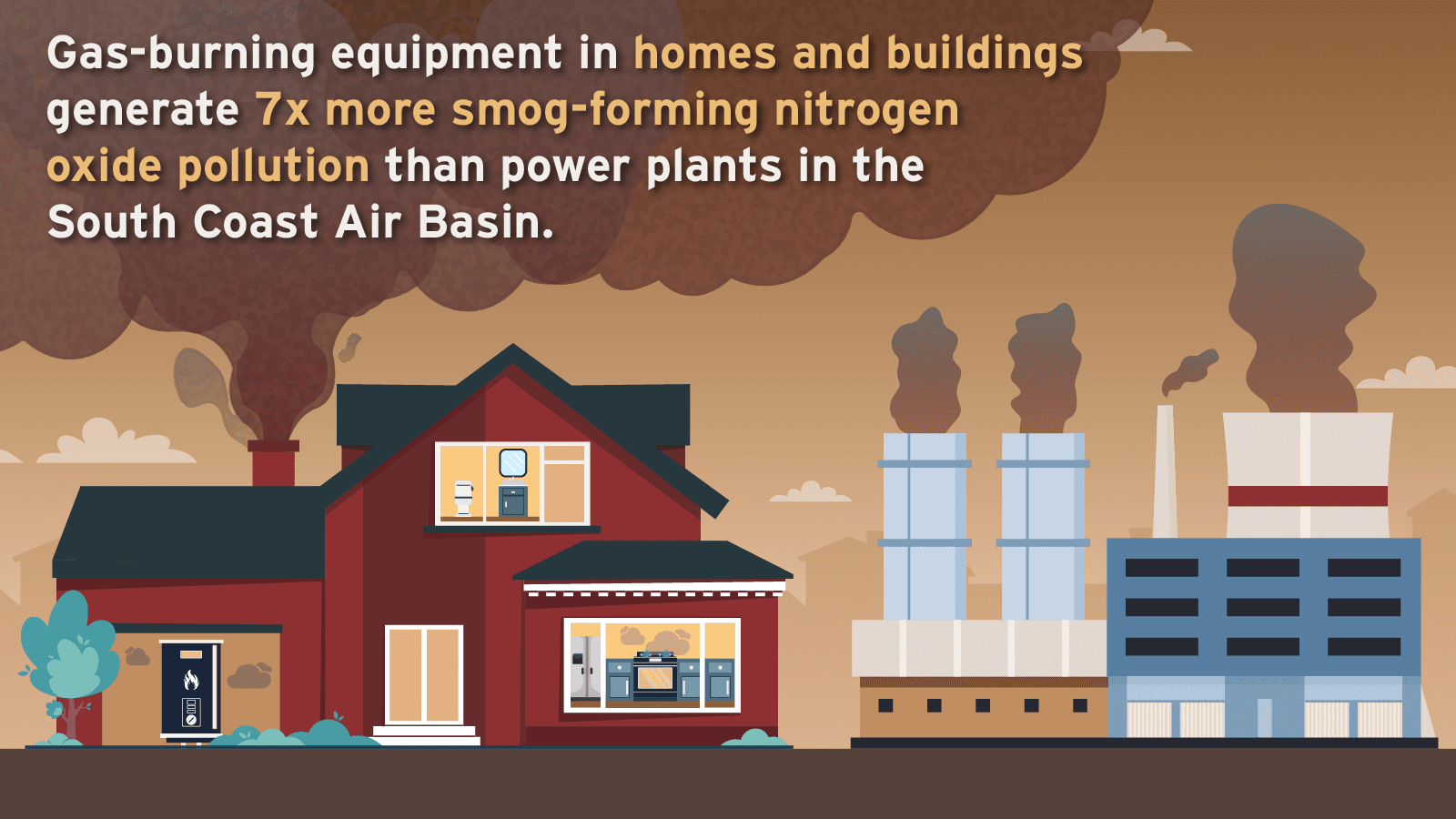
Additional Talking Points
- Our region has the most ozone polluted air in the country, and SCAQMD has a legal obligation to mitigate it. Pollution from household appliances contributes a meaningful share of the region so SCAQMD needs to address it.
- Health impacts from NOx emissions create real costs that are borne by families in the region and which add up. Using EPA methodology, costs associated with negative health impacts like lost school days, asthma attacks, and premature deaths from appliance pollution in the region have been estimated at $2 billion per year.
- Zero-emission requirements for new HVAC and Water Heaters are two of the most cost-effective, timely, and impactful actions our region can take to improve air quality and reduce greenhouse gas emissions.
- Clean, efficient, zero-emission heat pumps are a superior technology that is widely available today. With available incentives, home owners can often save money when choosing a heat pump today compared to a dirty gas unit.
- Setting meaningful sales targets sends a market signal that will lead to lower costs, and as installations increase installation costs will drop as well.
- Electrification is a necessary step to address climate, which is already having huge impacts on our community including the devastating fires this year, and electrification also supports climate adaptation by providing life-saving cooling and reducing flammable gas in homes.
- The current proposal represents a significant concession to landlords, business groups, and SoCal Gas. Any further opposition from these groups proves they are unwilling to help solve the problem.
- The proposed rules are the result of more than 16 months of work by AQMD staff to craft a policy that is impactful and cost-effective. The rules include consumer choice to address affordability concerns. It is time to move forward with the rules.

